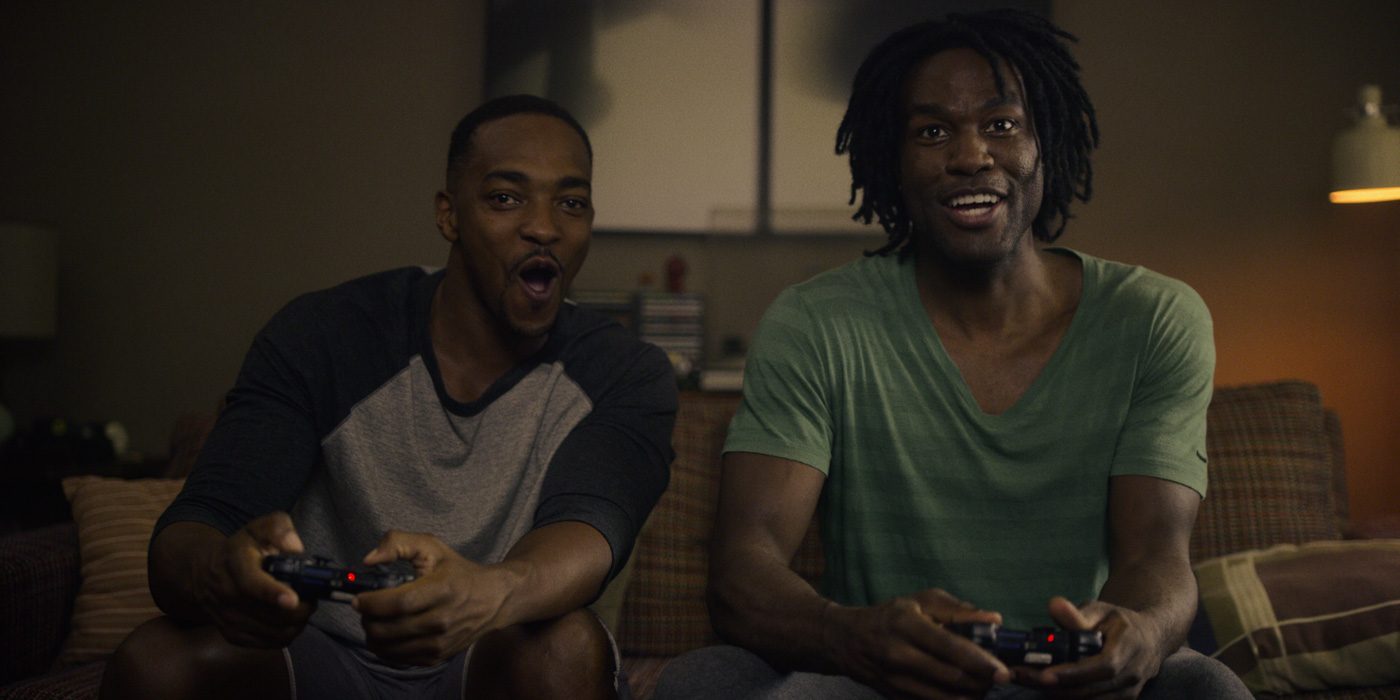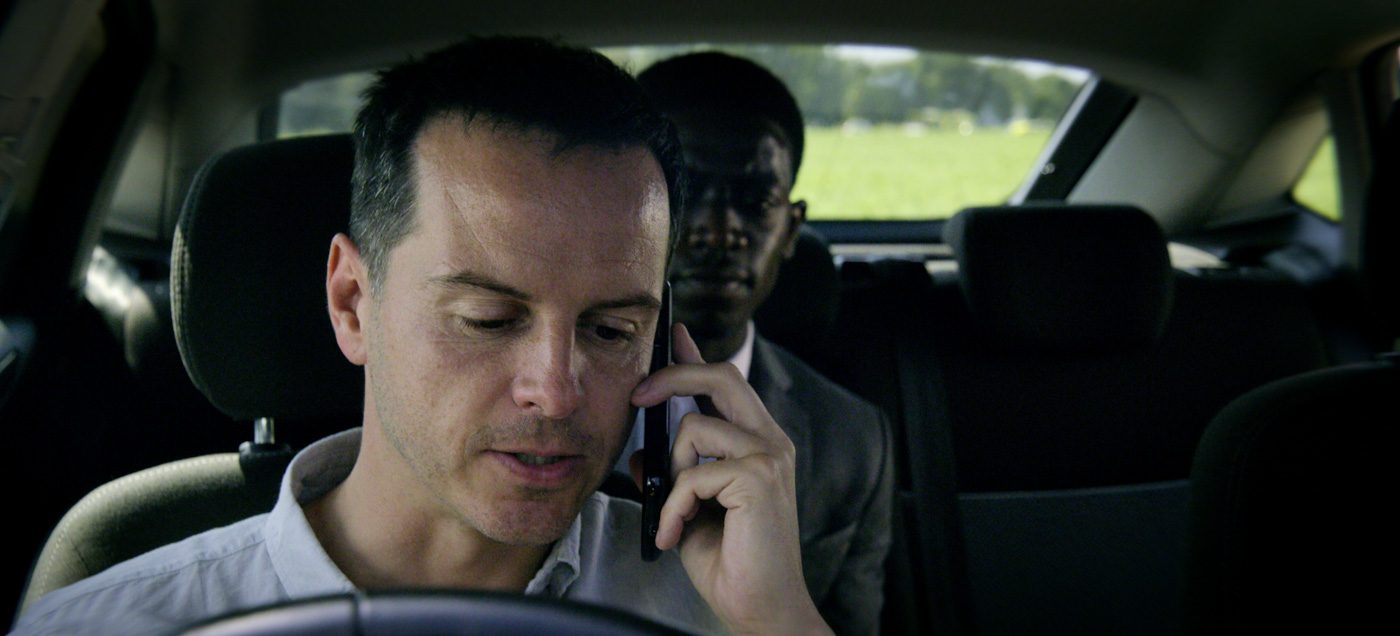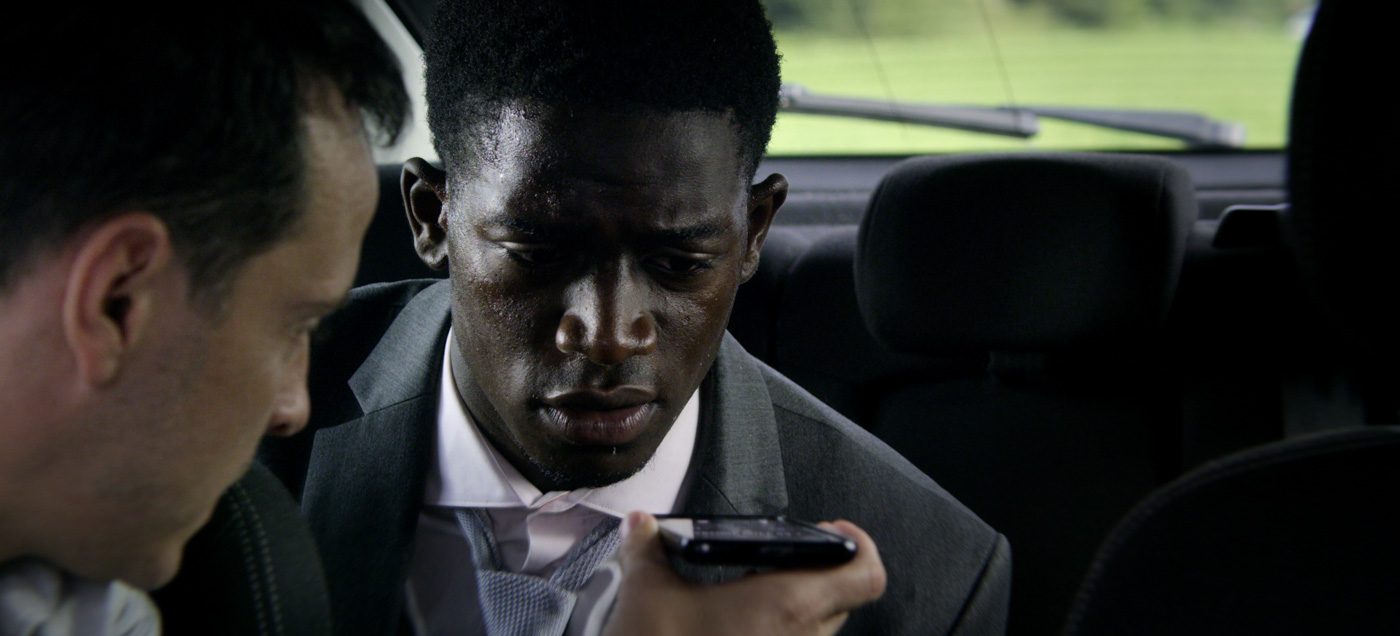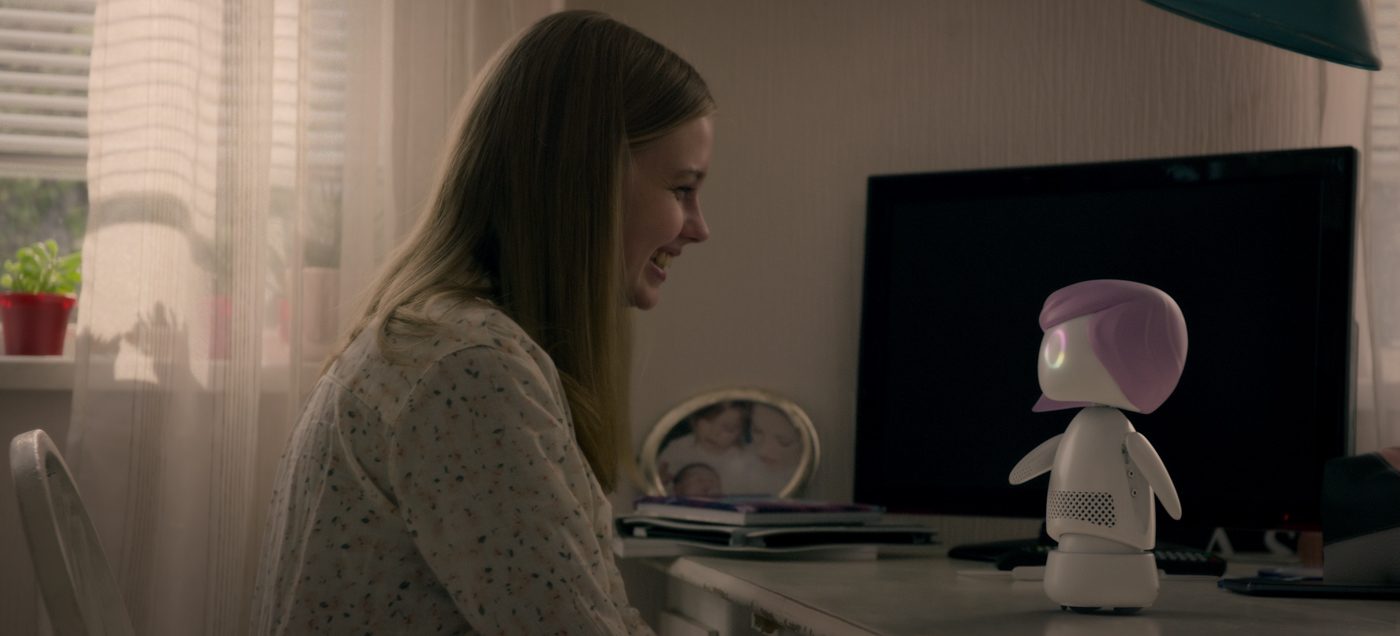SUMMARY
This is AI generated summarization, which may have errors. For context, always refer to the full article.

The fifth season of Black Mirror isn’t as harrowing as previous outings. The technologies presented in these three episodes all have world-altering (possibly dystopic) potential, but the season focuses on smaller, more personal struggles.
The result is a collection of stories that, while not as earth-shattering in their implications, make for compelling viewing.
** WARNING: PLOT POINTS FOR SEASON 5 FOLLOW **
“Striking Vipers”

“Striking Vipers” is about technology, and how we use it to build connections to fulfill our emotional needs. The story introduces two buddies: Danny (played by the Marvel Cinematic Universe’s Anthony Mackie) and Karl (played by the DC Extended Universe’s Yahya Abdul-Mateen II).
The two characters meet via VR in a fighting game reminiscent of Street Fighter and Tekken (Danny plays a male character Lance, while Karl plays a female character Roxette).
At first, they duke it out using special moves and combos. But they eventually form a sexual relationship through their characters, with the game’s exotic locations the perfect backdrop for their trysts.

The illicit relationship highlights the missing elements in both men’s lives.
For Karl, the perennial bachelor, it’s the chance to engage in deep, transcendent sex. For Danny, it’s an antidote to his stable but unfulfilling marriage.
The affair drives a wedge between the two friends. Danny wants to call it off, but Karl doesn’t want to let go. They eventually question their own sexualities — is it a homosexual act to have virtual sex with another man when he’s using a female character? In the electronic world of Striking Vipers, sexuality is literally binary.
The two men decide to confront the issue in the real world. They meet in a rain-soaked alley and kiss. It’s a tense scene with some great comedic beats, but their discovery, and the overall resolution of the story, is a bit anticlimactic.
“Smithereens”

“Smithereens” is a potent examination of grief and desperation. The story focuses on Chris (played with alarming intensity by Andrew Scott), a lonely and desperate ride-sharing driver. He kidnaps an employee of Smithereens, a social media platform that resembles Facebook. Chris holds the employee hostage and has one only demand: to speak with Billy Bauer, the creator of Smithereens.
After a stand-off with both police and Smithereens executives, Chris finally gets to speak with Billy. All Chris wants to do is tell the tech mogul the story of how one glimpse at a Smithereens notification while driving resulted in a car crash that killed his fiancée.
Smithereens is about things falling apart, and being utterly powerless to do anything about it.
While the real world’s Mark Zuckerberg may seem robotic and prone to spewing empty corporate platitudes about connection and openness, Bauer is more human — jittery, even. At one point, he even breaks down and tells Chris that he never intended for Smithereens to become what it is now. Imagine Zuckerberg saying the same thing.

The episode fulfills the fantasy of finally putting a tech mogul up close and personal with the consequence of their creations. It gives a human face and emotional urgency to what these people probably see as cold data.
While other Black Mirror episodes show technology amped to extreme degrees, Smithereens is more grounded in reality. And that’s what makes this episode potent. It isn’t a cautionary tale about what technology could become — it’s a cautionary tale of what technology is.
“Rachel, Jack and Ashley Too”

The episode presents pop star Ashley, played by Miley Cyrus. Ashley has all the trappings of a teen-idol: bubbly personality, throngs of adoring fans, and an image carefully managed by a team of handlers. To satisfy the demand for more Ashley, her team sells an AI-powered doll (named “Ashley Too”) which faithfully recreates Ashley’s personality.
But this isn’t another story about the perils of fame. Instead, the episode explores themes of control, identity, and — most importantly — consent. Ashley seems vivacious and free (her schtick is dropping uplifting messages in her songs and interviews), but this figure is anything but free.
Ashley is trapped by her fame, both emotionally and artistically. During quiet moments, she composes songs based on her dreams. The episode uses two Nine Inch Nails songs to great effect: “Head Like a Hole” and “Right Where it Belongs.” When Cyrus sings the latter to herself one early morning, it creates one of the more powerful scenes in a series already full of powerful ones.

Ashley suffers from apparent breakdowns, which her handlers (led by her aunt, who raised her) attempt to quash via drugs. She eventually overdoses, but her aunt can’t lose her money cow. So the team hook-up the comatose pop star to a brain-computer interface. They pluck songs found in her subconscious and attempt to turn them into a new batch of hits.
There’s just a problem: the songs from Ashley’s true self are dark and confrontational (which makes the use of NIN’s music all the more appropriate). The team remix the material into teen-friendly pop songs, and plan to release them for public consumption.
The episode has all the hallmarks of a classic Black Mirror episode: the heinous application of technology, the search for one’s identity. But the tone suddenly shifts when sisters Rachel and Jack, assisted by Rachel’s Ashley Too doll, attempt to rescue the singer.
The last act of the episode plays like a fun teen heist comedy… and I can’t believe I just described a Black Mirror episode as “fun.” But the resolution and closing song number (c’mon, you knew there had to be one) are just that.
The tonal shifts may be jarring at times, but they mirror Miley’s own career arc — it’s wild, unpredictable… and definitely fascinating. – Rappler.com

Iñigo de Paula is a writer who lives and works in Quezon City. When he isn’t talking about himself in the third person, he writes about pop culture and its peripheries.
Add a comment
How does this make you feel?
There are no comments yet. Add your comment to start the conversation.